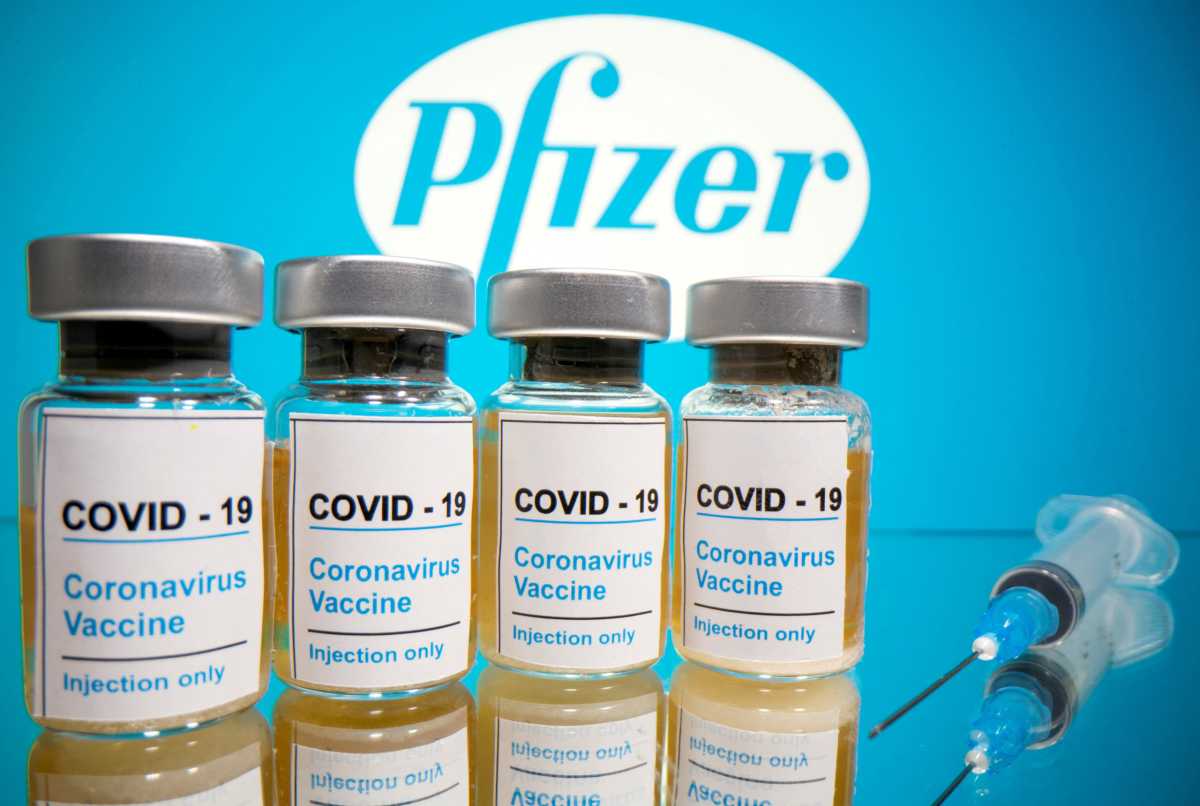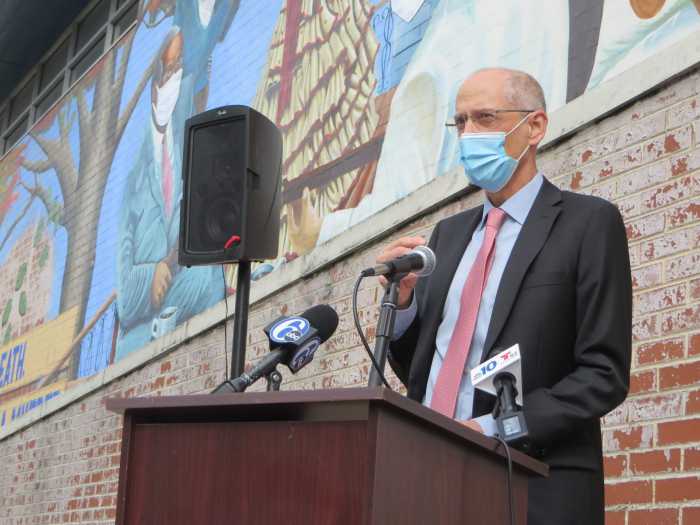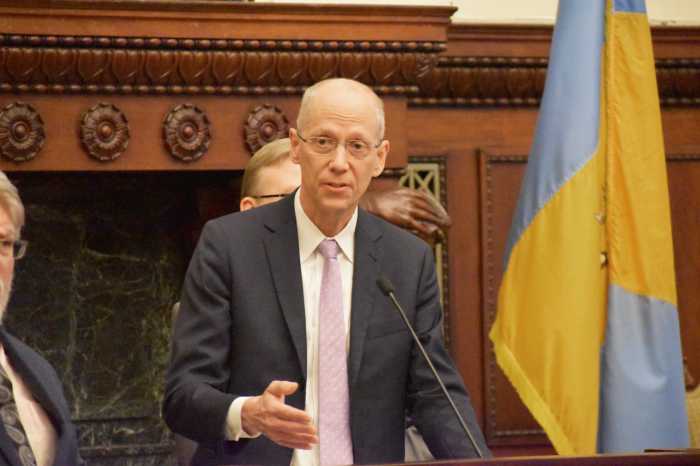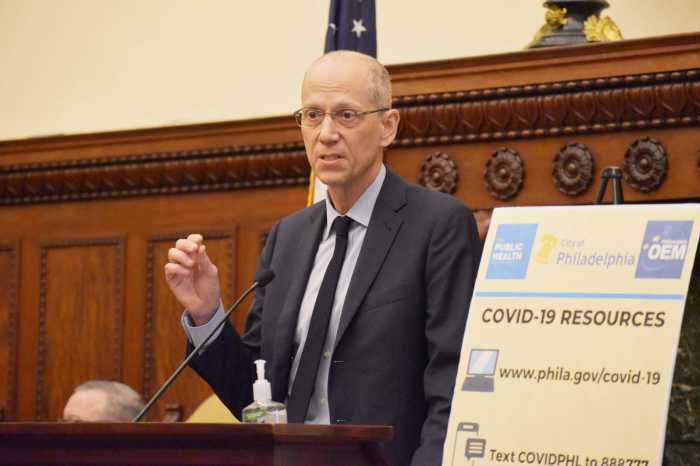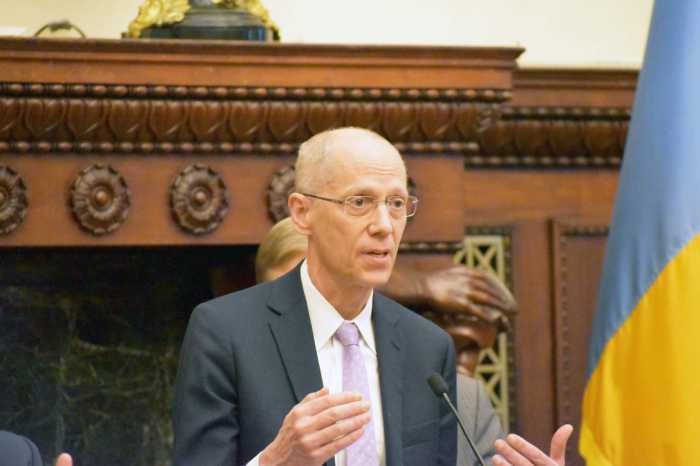Staff at all three of Einstein Healthcare Network’s hospitals have been polled in recent days about whether they are willing to receive a COVID-19 vaccine.
Dr. Steve Sivak, who is leading Einstein’s vaccine task force, said the health system has already identified those who could get vaccinated first, based on where they work within the hospital and their self-reported age and medical information.
“We were told that we will get our first doses from the city on December 15th, to be prepared to administer the first dose on December 16th,” Sivak told Metro.
Hospitals, health officials and pharmacies in the Philadelphia region are preparing for the initial phase of a massive vaccination effort with the hope that it will spell the end of the novel coronavirus pandemic.
A product developed by Pfizer and BioNtech will be considered by the U.S. Food and Drug Administration Thursday, and it’s expected a decision on whether to authorize the vaccine will follow hours later.
People are already receiving the Pfizer vaccine, which is said to be 95% effective, in the United Kingdom, and Canada approved its use Wednesday.
If the federal government authorizes the vaccine, shipments will begin going out quickly, but it’s still unclear how many will be headed for Philadelphia.
“We’ve gotten many numbers from the federal government but each one of them, they say it may change, and those numbers frequently have changed,” Thomas Farley, the city’s health commissioner, said this week.
Sivak said Tuesday that authorities have indicated that Einstein’s Logan hospital will receive 1,950 doses, and its two Montgomery County medical centers will split another 1,950.
“Those are all subject to change,” he added. “That could change any minute.”
Boxes of the vaccines will be shipped at the direction of the Centers for Disease Control and Prevention to the city’s Department of Public Health, which will store some and distribute the rest to hospitals.
Philadelphia’s collar-counties will receive their allocations from the Pennsylvania Department of Health.
Healthcare workers, including nursing home employees, who routinely come into contact with the virus will be the first to receive the injection.
Pfizer’s vaccine must be kept at minus-95 degrees Fahrenheit, meaning it can only be stored in ultra-cold freezers, raising concerns about the availability of such units.
However, Farley said storage capacity “is not a problem” in Philadelphia, with his department possessing a few freezers and other units scattered at hospitals around the city.
A spokesman for Jefferson University Hospitals said the system believes it has enough freezer space. It has also moved to acquire additional ultra-cold units. Sivak said Einstein has three such freezers.
The vaccine does not take up a lot of space, Farley said. A tray of around 1,000 doses is about the size of a pizza box.
Additionally, Pfizer and BioNtech have designed shipping containers that can keep the vaccines at the required temperature using only dry ice. Recipients can use the “shippers” for up to 30 days if they replace the ice every five days, the companies said.
The vaccine is good for five days at normal refrigerated conditions after being thawed, according to Pfizer.
CVS, which has contracted to inoculate nursing home staff and residents, will rely on the “shippers” to store the vaccine. The pharmacy chain has reached an agreement to administer the injections at more than 2,300 long-term care facilities in Pennsylvania.
At some time next year, CVS plans to stock the vaccine at all of its 10,000 stores, administering 20 to 25 million a month, more than the number of flu shots it distributes annually.
Mel Brodsky, executive director of PARD, which represents independent pharmacies in Philadelphia, said a few of his members have purchased freezers, but not many are planning to carry the Pfizer vaccine.
“We probably really won’t get involved until the Moderna (vaccine) is available,” he told Metro.
Moderna’s product, which is set for FDA review Dec. 17, does not need to be stored at ultra-low temperatures.
Both vaccines require two doses, with Pfizer’s follow-up injection 21 days after the first.
The Pfizer vaccine requires some assembly. It has to be thawed and reconstituted, at which point it has to be used within six hours, Sivak said.
“You’ve got to get a vial of powder and a vial of liquid. You’ve got to mix those two up,” he said. “Interestingly, they tell us directly they have to be stirred and not shaken.”
Medical systems are attempting to figure out who should get it first. Most are looking toward their emergency departments and intensive care units.
Jefferson acknowledged it will not have enough for all its employees initially, and that its occupational health team would administer it to those most at-risk of catching the virus at work.
Einstein, which has taken into account a worker’s age and medical history, if they choose to disclose it, has placed 1,800 people out of its 8,000-person workforce in a priority group, Sivak said.
If there are not enough vaccines at the start, a randomized drawing will determine who gets the injection, he added.
Not all employees have responded to the poll, Sivak said, but, among those who have, 80% indicated they wanted to get the vaccine. He thinks that number will rise now that data has been released about the risks associated with the Pfizer product.
“I think people were waiting to see that before they committed, and it looks very promising,” Sivak said.



